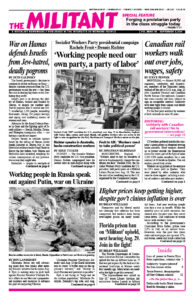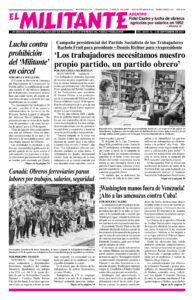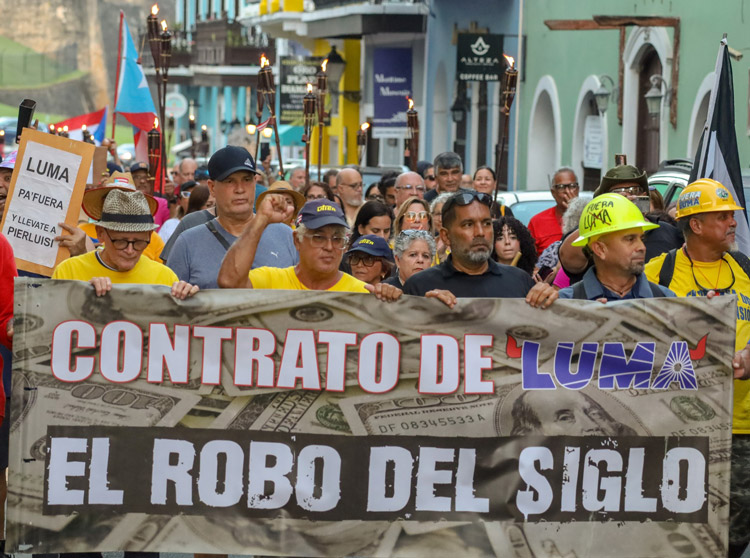Puerto Rico is in the heart of “hurricane alley” in the Caribbean and has been the target of many brutal storms over the years. In 2017 Hurricane Maria slammed into the island with 155 mph winds and torrential rain, right on the heels of Hurricane Irma. It caused a social catastrophe, mainly because of the effects of Puerto Rico’s colonial status and capitalist social relations.
This year tropical storm Ernesto, much weaker than Maria, hit Puerto Rico Aug. 14. “Even though it really wasn’t that bad a storm,” retired teacher Mildred Laboy told the Militant by phone from Humacao, Puerto Rico, Aug. 16, “we’re still without electricity and water.”
Ernesto left 728,000 households and businesses without power and thousands without water, including in Humacao, one of the areas hardest hit by Hurricane Maria in 2017. A week after Ernesto, there were still more than 41,000 households lacking power, Luma said.
Since then, the U.S. colony’s already fragile electrical system has deteriorated — while prices went up. Making everything worse, the government privatized the electrical system, Laboy said.
They gave control of the grid to Luma Energy, a U.S.-Canadian venture, in 2021, and control of the generating plants to Genera PR, a subsidiary of U.S.-based New Fortress Energy, in 2023. Many workers on the island were opposed, seeing this as one more move to take advantage of Puerto Rico’s colonial status to enrich foreign capitalists.
“Luma said it was prepared, but they didn’t even keep up trimming the trees that threaten power lines during a storm,” Laboy said. Blackouts are common, including two just in the days before the storm arrived, she said.
In fact, Luma admits there has been a 19% increase in blackouts over the last year.
The contracts to Luma and Genera PR are lucrative. Under the terms of its 15-year deal, the government is paying Luma more than $100 million a year. In addition Luma controls some $10 billion from the Federal Emergency Management Agency, ostensibly to modernize the antiquated and deteriorating equipment, a result of decades of decapitalization when it was government run. Luma claims that’s not enough and is asking for $200 million more a year.
The government pays Genera PR $22.5 million a year.
When Luma took over the grid, it refused to honor the contract with UTIER, the electrical workers union, and most union linesmen took other government jobs or retired.
“Privatization has been a failure,” José Rodríguez Vélez, organizational secretary of the Movimiento Solidario Sindical union federation, which organizes workers at Pepsi, Coke and other workplaces, told the Militant from San Juan. “Luma and Genera PR don’t care if people have light or not, all they care about is their profits.”
Instead of putting the utility in the hands of capitalist privateers, “the government should guarantee electricity as an essential service provided at a reasonable price,” he said.
Carlos Rodríguez, a truck driver and leader of the Broad Front of Truckers, said that when the electrical system was turned over to Luma and Genera PR, the government said it would turn around the long-neglected electrical system.
“They blamed the workers, the UTIER union, the linesmen” for the disaster after Maria, he said. But “since privatization it’s just gotten worse.”
Laboy said working people in Humacao have become accustomed to the frequent blackouts. “We do what we always do, help each other,” she said, noting that Arecma, a community group she belongs to, set up a kitchen to provide low-cost meals to those who need them.


